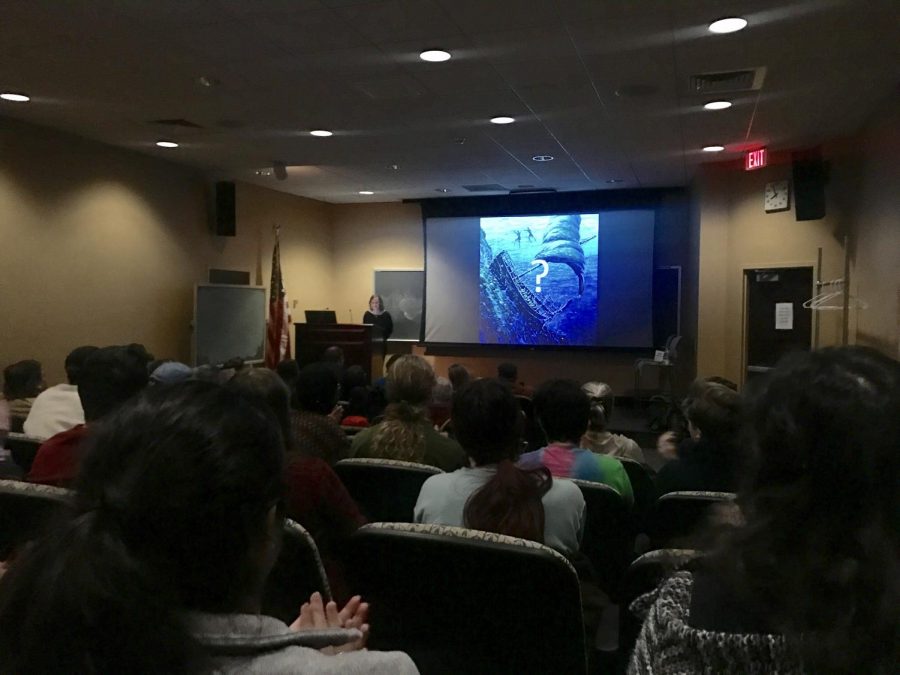Inspirational Teaching award-winner lectures on importance of underwater archaeology
February 15, 2018
This year’s recipient of the Class of ’56 Lectureship for Inspirational Teaching award, Kris Trego, gave a lecture on Feb. 13 on underwater archaeology and its importance in today’s world. Trego is a member of the classics and ancient Mediterranean studies department here at the University. Her work focuses on the Mediterranean; particularly regions around Turkey.
Trego stressed the importance of underwater archaeology throughout the lecture, because while researchers and students may think artifacts look mundane, they are valuable pieces of history.
“I’m hoping to instill in you the idea that we still do need students to be studying the past and asking new questions for the future,” Trego said.
The lecture began with the definition of a ship. There are three ways one can define oceanic ships, and the different definitions are indicative of the different ways one can look at an artifact. Trego said archaeologists focus on the “how,” the “why,” and the “who” of each artifact they find. A ship can be defined as a machine, an instrument adapted to function, or as a living, working environment, when defined in terms of how, why, and who, respectively.
Trego went on to explain that ships were the “connective tissue of the Mediterranean,” and have always been an important part in human history throughout the centuries. “While ships have always been important in the show of power, they also bring people, culture and commodities,” Trego said.
Many students from Trego’s class, “Ancient Ships and Seafaring” were present.
“She’s my professor, and it was really awesome to hear her talk about what we’ve learned in class as it applies to her actual work. I feel like this is what it means to be at a University,”Ana Kola ’21 said. Trego’s lecture not only gave a glimpse into the past, but also an explanation of why these discoveries are important today.
“It’s great to have a contribution like this to the University’s lectures and to our staff. It was a great turn out, not only with students and faculty, but also lots of people from the community,” professor of classics and ancient Mediterranean studies, Stephanie Larson said.






















